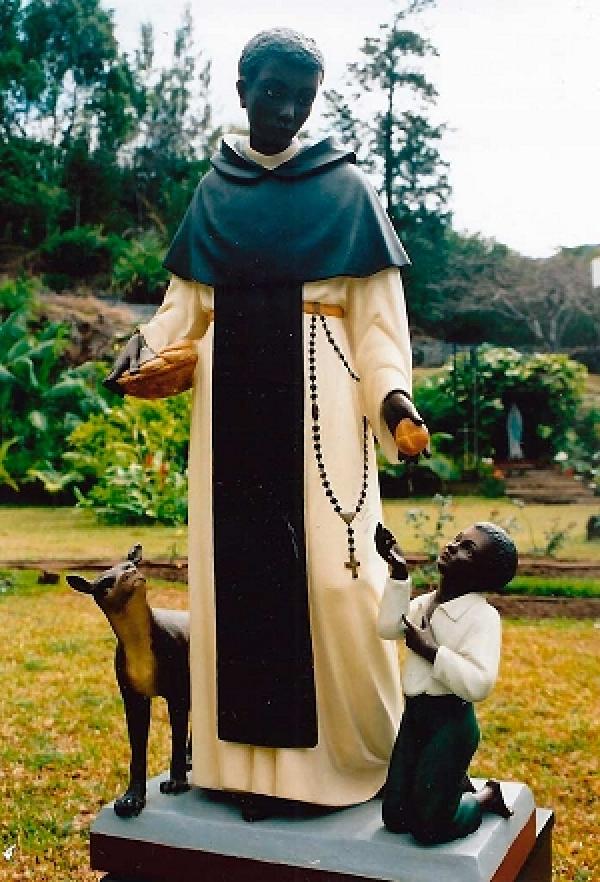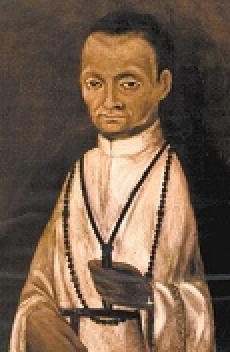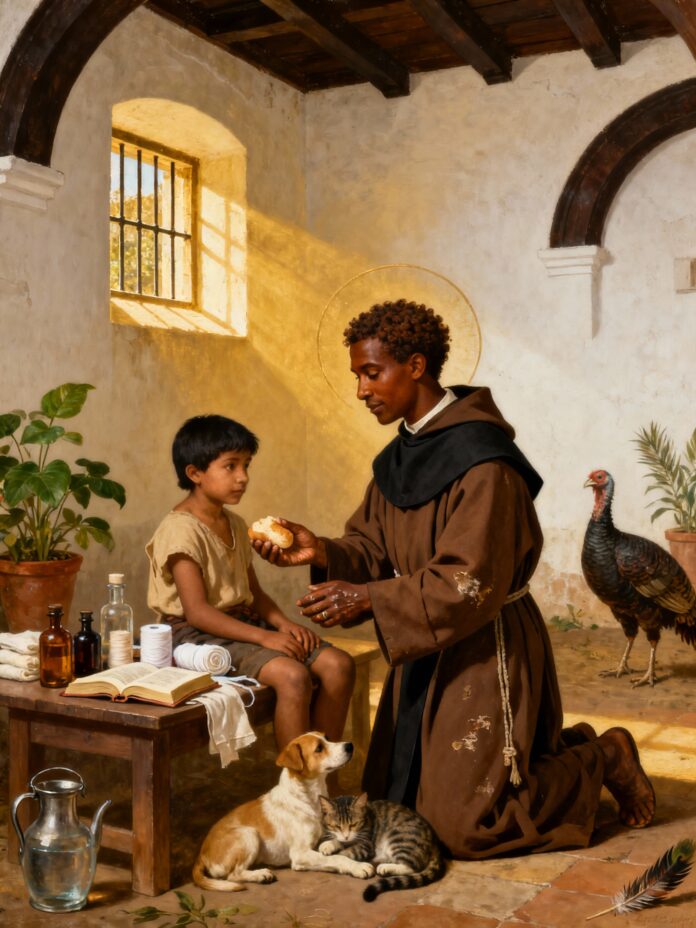The humble brother of Lima, a 17th-century charity worker
The son of a Spanish nobleman and a former Black slave, Martín de Porres embodies grace received in the midst of humiliation. In Lima, he transformed contempt into service, poverty into hope. In a world still marked by racial barriers, he healed without distinction, cared tirelessly, and prayed unceasingly. Today, he remains a symbol of a fraternity that transcends prejudice and restores to each person their dignity as a child of God.

Walking in the light of service
Born in Lima in 1579, Martin was the illegitimate son of a Spanish nobleman and a freed Black woman. His father acknowledged him late in life, and the child grew up in poverty. From a very young age, he learned the trades of barber and nurse, skills he transformed into a ministry of mercy. At 22, he joined the Dominicans as a tertiary, then as a lay brother.
In the convent corridors, he tends to wounds, soothes fevers, and heals inner wounds. When the hospice lacks resources, he shares his food, multiplies remedies, and begs for the needy. His gift for reconciliation brings together the poor, the slaves, the sick, and injured animals. His cell becomes a refuge.
In 17th-century Peru, marked by racial hierarchy, his humility disarmed fear and resentment. He offered his life, even consenting to be sold to settle a convent debt. His silent prayer, his ecstasies, and his constant smile made him a witness to charity incarnate. He died on November 3, 1639, renowned for his universal kindness. John XXIII canonized him in 1962.

The scent of charity
An old account tells of Martin's room being recognizable by the sweet scent that emanated from it after his death. His followers saw this as a sign of an inner purity that had become sensitive to the world. Another tradition recounts that he spoke to stray animals, and that dogs and cats found shelter and affection in his home.
These accounts do not add to the miracle, they reveal its scope: Martin reminded us that compassion does not stop at humankind, it embraces all creatures. His simple and fraternal legend teaches that holiness separates nothing from what God loves.
Spiritual message
God looks not at rank, but at the heart that serves. Martin teaches patience in the face of injustice, peace instead of resentment. His life shows that to love is to heal visible wounds and the wounds of contempt. Like him, let us hold the lamp of concrete goodness: the kind that illuminates without judging. His silent charity becomes a prayer in action; his calm, a disarming strength.
Prayer
Lord Jesus,
You who gave your servant Martin a heart without borders,
Make us artisans of peace.
Teach us to serve the poor with gentleness,
to endure affronts without hatred,
and to find our joy in you.
Grant us to love humbly,
like Martin in the streets of Lima,
and to recognize your presence in every face.
Amen.To live
- To offer a discreet service to a despised or isolated person.
- Giving someone time, a meal, or care without expecting anything in return.
- Read and meditate for ten minutes on the verse: “Whatever you did for the least of these brothers and sisters of mine, you did for me” (Mt 25:40).
Places
In Lima, the Church of Santa Rosa de las Monjas houses her relics. Her image travels across the Andes, the Caribbean, and as far as Réunion Island, where Dominican nuns honor her as a model of social and racial unity. Hospitals, clinics, religious orders, and schools bear her name. Her image appears alongside that of Rosa de Lima on the altars of the Peruvian people. Every November 3rd, her image is carried through the streets of Lima in a procession filled with prayers, songs, and acts of charity.
Liturgy
- Readings: Philippians 2:1-4; John 13:1-15 — a call to serve with humility.
- Song: “Ubi caritas et amor, Deus ibi est” — where charity and love reign, God dwells.


